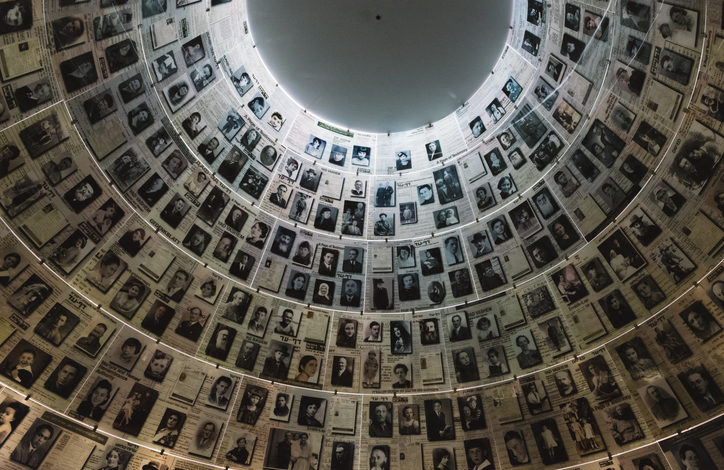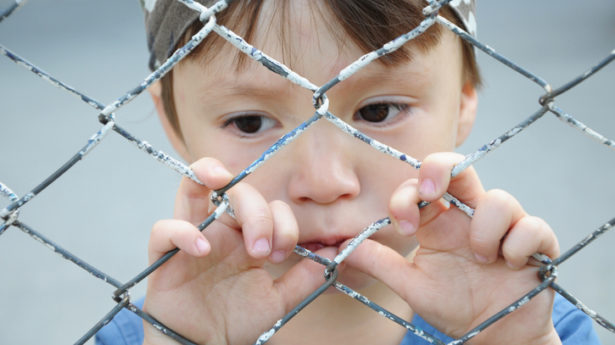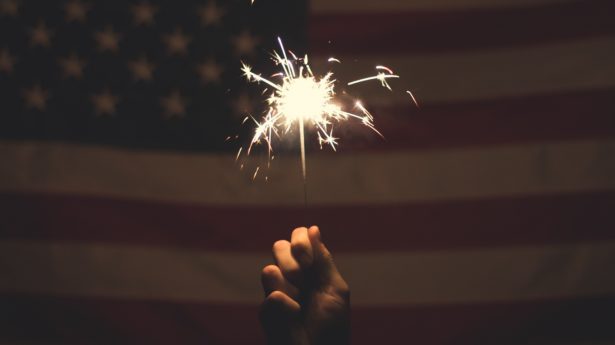The Unitarian Universalist Service Committee advances human rights through grassroots collaborations.
Reflections On Resistance, Heroism, and the Spirit of an Undivided Nation

By on February 13, 2019
Like many of us throughout the country, I braced myself for a late night last Tuesday to watch the President’s second State of the Union address. What struck me the most was hearing him misappropriate some of the most inspiring episodes of U.S. history, calling into question which ideals they actually represent. In all too many ways, the policies and rhetoric of this White House do not hearken back to the United States’ admirable role in defeating fascism, but rather to the forces of isolationism and bigotry that left refugees in danger. These similarities even extend to Trump’s choice of campaign slogan: “America First”—a 1930s rallying cry for those U.S. citizens who didn’t believe our moral responsibilities extended to the rest of our human family.
Trump celebrated memories of U.S. soldiers who stormed the beach on D-Day to defeat fascism and went on to liberate the survivors of Nazi concentration camps during World War II. However, he failed to mention that when looking back at history, there was information available to Americans about Nazism and Hitler throughout the 1930s that we still wrestle with today in trying to understand what more could have been done.
I recently visited a special exhibit at the Holocaust Memorial Museum in Washington D.C., Americans and the Holocaust, which honors UUSC and our founders, Martha and Waitstill Sharp, for their heroic mission to rescue children from Nazi Germany. The overall exhibit examines the motives, pressures, and fears that shaped Americans’ responses to Nazism, war, and the persecution and murder of Jews in Europe during the 1930s and ’40s. During my visit, I was struck deeply by all the facts and exhibits demonstrating how much the international community knew during a time when we might have stopped the rise of Nazism in Germany and its assault on European Jews.
Interestingly, even as early as 1933, American Jewish leaders hoped to persuade the U.S. public and government to condemn the Nazi persecution of Jews in Germany, but they were held back by concern about anti-Semitic backlash in the United States. Does this sound familiar?
Even more tragic, before the war began, the U.S. government repeatedly denied entry to Jewish immigrants and refugees, forcing thousands to remain in occupied Europe. Many were later murdered in the Holocaust.
As I write, the Trump administration is pushing back asylum-seekers at the U.S.-Mexico border and forcing them to remain in Mexican border towns – placing them at immediate risk of sexual assault, extortion, kidnapping, and other human rights violations. This is only one of several ways in which the President has made it harder and more dangerous to seek asylum in the United States since taking office. The list of egregious tactics is long and includes separating and detaining families, slashing asylum protections for survivors of domestic violence and gang persecution, eliminating a program that saved the lives of many Central American refugee children, and working to undermine legal protections for trafficking victims and unaccompanied minors.
At the close of his speech, Trump called the people of the United States to reflect on “our future—our fate.” I think we are doing just that. If our minds and hearts are open, and are truly listening to the beat of our nation right now, you’ll hear outrage at what is happening at our borders and you’ll see individuals, communities moving together to create sanctuary—fighting local ordinances to provide protection to migrants, opening churches to provide physical sanctuary and endless volunteers welcoming migrants and providing services to families. You’d also see beautiful, vibrant, bi-partisan, intergenerational protests happening every time the administration seeks to restrict rights for those crossing borders.
As we shepherd the work of UUSC day in and day out, we are mindful that we serve as the torchbearers to the UUSC human rights defenders that have come before us, and eventually to those who will carry the work forward after. We form an unbroken line of advocates, urged to action by our shared values of compassion and interconnectedness, longing to realize justice and dignity for every member of our human family.
Let us not forget that in the best moments of our history as a people, we have served on the side of human freedom. UUSC’s history of fighting injustice, our mission to advance human rights and our values all call us to remember the lessons of our past and to hold onto these truths as we look to create our future. I am reminded of the words of an inscription at the Yad Vashem memorial in Jerusalem, where Martha and Waitstill Sharp are honored as Righteous Among the Nations. The inscription reads:
To the martyrs of the Holocaust
To the rebels of the Ghettos
To the partisans of the forests
To the insurgents of the camps
To the fighters of the Resistance
To the soldiers of the Allied forces
To the saviors of their siblings in peril
To the heroes of secret migration
To eternity…
Photo Credit: iStock – BrasilNut1

